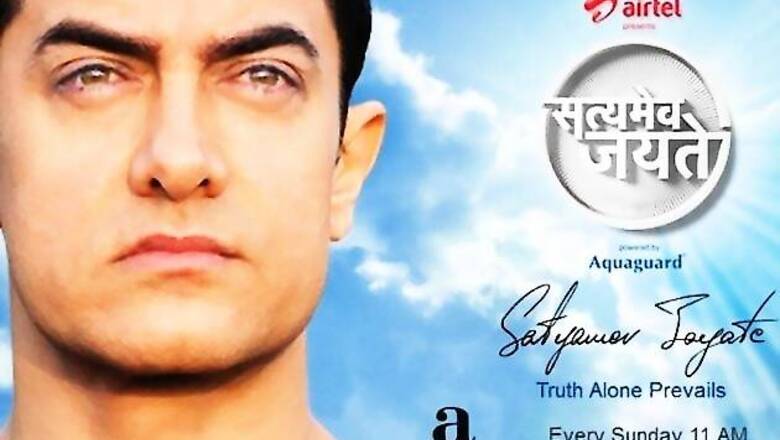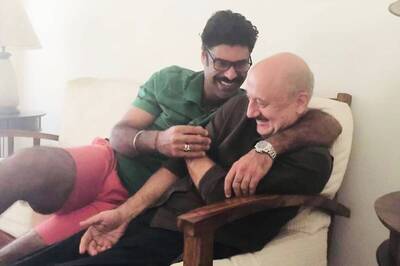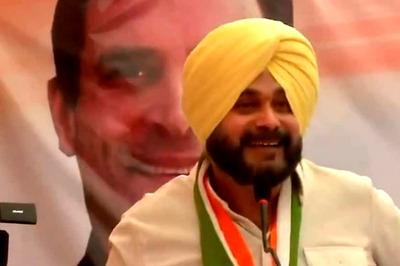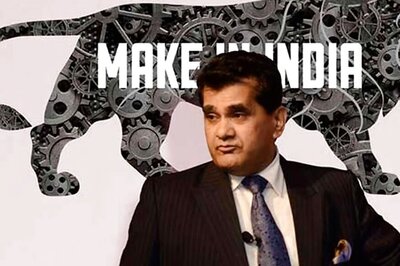
views
CEHAT (Centre for Enquiry Into Health and Allied Themes), the research centre of Anusandhan Trust, that is involved in research, training, service and advocacy on health, released a series of documents after the second season of TV show Satyamev Jayate aired last Sunday. Some guests invited to the first episode of the second season had alleged that doctors are trained very early on to treat rape victims with suspicion.
The allegation undoubtedly caused uproar in the medical community. The newest episode of the show hosted by Bollywood superstar Aamir Khan questioned the role doctors played in exacerbating the trauma of a rape survivor by putting them through the ignominy of undergoing harrowing medical examination. Added to the mental trauma, often the physical examination is painful and traumatic. In extreme cases, it was alleged that doctors do not administer painkillers to victims before examining their bruised private parts.
CEHAT (the acronym incidentally means 'health' in Hindi) by its own admission on its website, works with the disadvantaged masses "for strengthening people's health movements and for realising right to health and health care." It acts as an interface between progressive people's movements and academia.
A review of the first episode on Firstpost said that the claim by the NGO, that there's a manual that tells doctors to treat rape survivors with suspicion, is not followed up with evidence. "The two doctors I asked said they'd never seen any such instruction in writing. However, they did concede that the attitudes of many doctors, particularly in smaller and government hospitals, is similar to what Khan's program outlined," the article stated.
The CEHAT analysis of forensic medicine text books quoted 'Parikh, C. K. (1999) Parikh's text book of medical jurisprudence and toxicology: for classrooms and courtrooms' as saying that "Rape is an allegation easily made and harder to disprove".
The book 'Reddy, K. S. Narayan & Murty, O.P. (2013). The Essentials of forensic medicine and toxicology (32nd ed.) Hyderabad: K. Saguna Devi' said this about a rape victim: "Necessary to prove that maximum resistance was offered by the woman and that all means had been tried to prevent sexual intercourse, e.g shouting, crying, beating, biting etc. The woman may surrender from fear or exhaustion, in which case it is regarded as rape."
CEHAT, has developed a manual for the sensitive and scientific medical examination of survivors of rape.
Meanwhile, the Union Health Ministry, which has drawn new guidelines for treating rape victims, has asked all hospitals to set up a designated room for forensic and medical examination of victims besides outlawing the two-finger test performed on them, dubbing it as unscientific.
The Department of Health Research (DHR) along with Indian Council of Medical Research (ICMR) with the help of experts formulated this set of national guidelines for dealing with criminal assault cases, which will hopefully put an end to the "horrendous" medical process, which the victims are subjected to after the sexual abuse.
The DHR has also drafted a new manual to address the psycho-social impact of sexual violence including counselling that the victims should receive to alleviate her woes. These guidelines have been made available to health care providers who work with victims of sexual violence. An experts' group on Gender and Health was formed by Dr VM Katoch, Secretary to GOI-DHR and Director General ICMR in November 2011 under the chairmanship of Dr ME Khan (Secretary, Sexual Violence Research Initiative) to formulate these guidelines which can be used at Primary Health Centres and district hospitals whenever a rape victim approaches them.
Later, Indrajit Khandekar, in-charge Clinical Forensic Medicine Unit (CFMU) & Associate professor at Mahatma Gandhi Institute of Medical Sciences (MGIMS) Sevagram- Wardha (on whose study report titled "pitiable & horrendous quality of forensic medical examination of sexual assault cases" a PIL was filed in Bombay High Court) was given the responsibility to draft these guidelines.
The guidelines drafted were made available to public and experts and their opinion was sought. Following this, the guidelines were released for circulation on December 16, 2013.
Khandekar, who pursued the matter single handedly, said he had successfully impressed upon the state government on how to handle such cases and now at national level too, the Centre has come out with fresh guidelines.
####




















Comments
0 comment